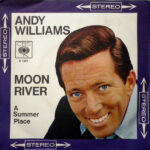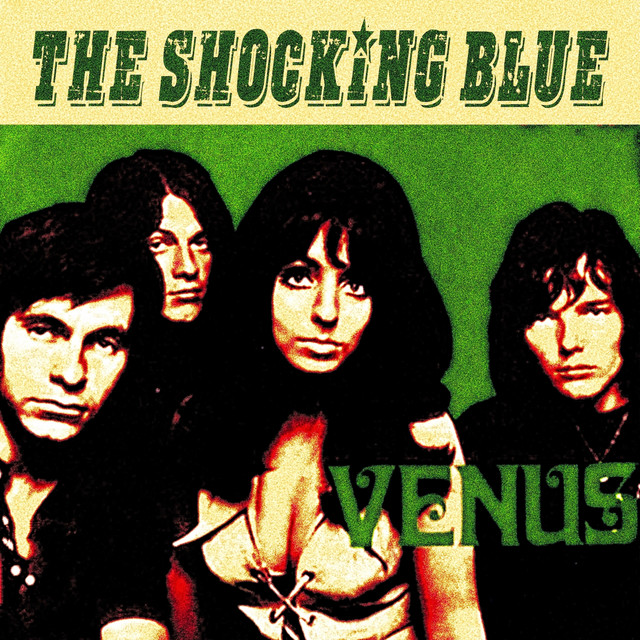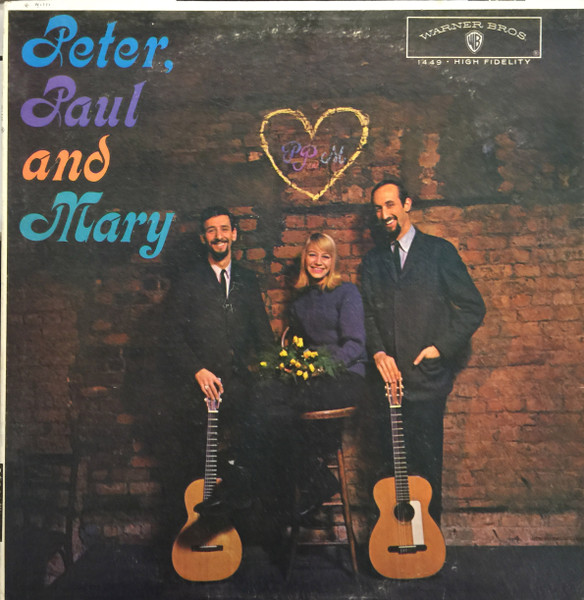 “Moon River” is a song that doesn’t just linger in the memory—it inhabits it. With its gentle melody and wistful lyrics, it’s less of a composition and more of a feeling, like the glow of twilight on a riverbank or the ache of a half-remembered dream. Though originally composed by Henry Mancini with lyrics by Johnny Mercer for the 1961 film Breakfast at Tiffany’s, the version recorded by Andy Williams has become perhaps the most enduring interpretation. His voice, smooth and unhurried, wraps around the melody with a kind of graceful restraint, turning a cinematic moment into a timeless musical statement. “Moon River” is more than a standard; it is a song that has traversed decades and genres, always arriving with the same delicate beauty, always promising something just out of reach, and always calling to the wanderer within us all.
“Moon River” is a song that doesn’t just linger in the memory—it inhabits it. With its gentle melody and wistful lyrics, it’s less of a composition and more of a feeling, like the glow of twilight on a riverbank or the ache of a half-remembered dream. Though originally composed by Henry Mancini with lyrics by Johnny Mercer for the 1961 film Breakfast at Tiffany’s, the version recorded by Andy Williams has become perhaps the most enduring interpretation. His voice, smooth and unhurried, wraps around the melody with a kind of graceful restraint, turning a cinematic moment into a timeless musical statement. “Moon River” is more than a standard; it is a song that has traversed decades and genres, always arriving with the same delicate beauty, always promising something just out of reach, and always calling to the wanderer within us all.
Andy Williams never actually sang “Moon River” in the film or had the first recording of the song, but through his performance and frequent association with it—especially his use of it as the theme song for his television variety show—he made it his own. The song became so intertwined with his identity that he would go on to name his theater in Branson, Missouri the “Moon River Theatre.” For many, Andy Williams’ version is the definitive one, a reading so emotionally pure and musically elegant that it feels as though the song was written just for him. His version doesn’t impose emotion upon the listener; rather, it invites them to feel it in their own way, offering a blank canvas of soft notes and open-hearted phrasing.
The lyrics penned by Johnny Mercer are deceptively simple, but loaded with meaning. “Moon river, wider than a mile, I’m crossing you in style someday.” It speaks to the dreamer, the traveler, the person with a suitcase full of hope and a heart full of longing. Mercer, drawing from his own Southern upbringing and his memories of the river near his boyhood home in Savannah, Georgia, captures the idea of a destination not just in space, but in spirit. The river becomes a metaphor for life, for love, for the passage of time and the pursuit of something greater than the self. It isn’t a roaring, powerful current—it’s a gentle, patient stream that moves steadily toward the horizon.
When Andy Williams sang those words, he brought with them a grace that only comes with true vocal discipline and emotional clarity. His tone is warm, but never cloying; expressive, but never overwrought. There’s a subtlety to his vibrato, a patience in his phrasing that matches the slow drift of the river itself. He doesn’t rush the melody. Instead, he floats on it, allowing each note to bloom naturally, like ripples across the water. His voice gives the song its wings, and it soars quietly, with no need for fanfare or bombast. It’s a performance that respects the listener’s emotional space, and in doing so, earns a kind of reverence rarely achieved in pop music.
The music composed by Henry Mancini is equally integral to the song’s magic. Mancini was a master of melody, and “Moon River” is perhaps his most iconic creation. The chords are simple and familiar, but the way they flow gives the song its dreamlike quality. It’s structured like a lullaby, but with the sophistication of a jazz ballad. The harmony gently rises and falls, echoing the ebb and flow of a river’s current. Mancini’s accompaniment allows the voice to shine while still offering emotional depth, and in Andy Williams’ rendition, this balance is perfectly maintained. The orchestration is subtle, with lush strings and soft piano accents that never overshadow the vocal, instead weaving a warm bed of sound for the melody to rest upon.
“Moon River” became a cultural touchstone almost immediately after its debut. Audrey Hepburn’s rendition in Breakfast at Tiffany’s introduced it to the world, and it won the Academy Award for Best Original Song. But it was through Andy Williams’ steady championing of the song that it reached the status of classic. His rendition turned the track from a film moment into a universal message. He sang it countless times throughout his career, often with the same unaltered arrangement, showing a respect for its purity that many artists would later emulate. His unwavering commitment to the song reflected how deeply it resonated with audiences across eras and backgrounds.
What makes “Moon River” so enduring is not just its technical beauty, but its emotional accessibility. It doesn’t tell a specific story. Instead, it evokes a mood, a longing, a hopeful sadness. It touches on themes of companionship, with the line “Two drifters off to see the world,” hinting at the bond between the narrator and an unseen companion—be it a person, a dream, or even the river itself. This openness allows listeners to project their own experiences onto the song. For some, it’s about young love. For others, it’s about childhood, or the memory of a parent humming it on a quiet evening. It is, in essence, a personal song with universal appeal.
Over the decades, “Moon River” has been covered by dozens of artists—Frank Sinatra, Judy Garland, Barbra Streisand, Aretha Franklin, and more recently by Frank Ocean and Morrissey. Each version brings a new shade of feeling, a new interpretation of its gentle message. But time and again, listeners return to Andy Williams’ recording, not because it is the flashiest or most inventive, but because it feels the most true. His version doesn’t dramatize the river. It simply lets it flow, trusting that the beauty of the song will do the work.
The cultural relevance of “Moon River” has persisted through changing musical trends, from rock to disco to hip-hop and beyond. In every era, it’s managed to maintain a presence, often reemerging during moments of reflection or transition. Its placement in weddings, funerals, films, and advertisements speaks to its emotional range. It is both celebration and elegy, promise and memory. Andy Williams’ voice has become synonymous with this duality, his recording offering a kind of emotional refuge in a world that often moves too quickly for sentiment.
Williams’ entire career was marked by a kind of quiet elegance that matched the tone of “Moon River.” He wasn’t a controversial figure. He didn’t chase trends. Instead, he carved out a space where sincerity and skill could coexist, where a well-crafted song sung with heart could still capture the imagination. “Moon River” was the perfect song for his artistic temperament, and he gave it the reverence it deserved. He didn’t just perform it—he lived in it, and by doing so, he invited generations of listeners to find their own place within it.
There is something almost sacred about the way “Moon River” continues to resonate. At a time when so much of popular music is about immediacy, about the next hook or the viral moment, this song asks the listener to slow down. It whispers rather than shouts. It invites rather than demands. And perhaps that is why it continues to endure. It doesn’t offer answers. It offers companionship on the journey. Like the river it references, the song keeps flowing—through time, through memory, through hearts that ache and dream and hope.
The beauty of Andy Williams’ “Moon River” is that it doesn’t need to be explained to be felt. It’s the kind of song that feels like it’s always existed, like something found rather than written. It’s been sung in concert halls and living rooms, on late-night TV specials and quiet car rides. Its simplicity is its strength, and its sincerity is its anchor. As long as there are people looking up at the night sky, chasing dreams, or saying goodbye, there will be a place for “Moon River.”
Andy Williams gave the song its most cherished voice, and in doing so, he gave the world a gift that doesn’t age. It doesn’t belong to any one time or place. It belongs to everyone who’s ever wanted something more, to anyone who’s ever looked out across the water and imagined a different life. And so, it continues to drift, softly and steadily, across the vast emotional landscape of human experience—forever gentle, forever true, and always just around the bend.


